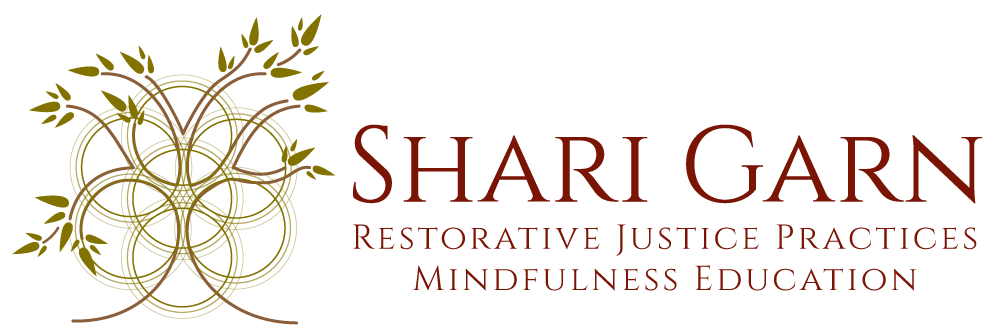Mindfulness Education
and Restorative Justice Practices
Mindfulness practice plays a key role in the work that I do in restorative justice practices. As we transition from a being a punitive, reactive culture to a relational, responsive culture, what we inevitably encounter is the need to slow down and calm our emotional reactivity so that we can make the choice to respond in a way that is restorative, in a way that nurtures healthy relationships. The ability to self-regulate in this way is not something that necessarily comes naturally yet it is a critical first step in all approaches to conflict management and relational repair. How often have we heard, “Stop and calm down” before attempting to resolve conflict? But when have we been taught explicitly how to do that?
The mindfulness approach that I use and that I teach is a secular approach most closely related to the Mindfulness Based Stress Reduction (MBSR) practices developed by John Kabbat-Zinn. This approach is research based, has been used widely in the medical and mental health fields and is gaining popularity in educational settings. MBSR has been shown to be effective in calming the nervous system and cultivating the skill of self-regulation.
Most of us entered into the field of education because we wanted to connect, to make a difference in the lives of our students, children and adults alike. Genuine connection is only possible in the present moment. When we practice mindfulness we are practicing bringing our attention and awareness to our experience of the present moment, and learning to sustain that awareness in a non-judgmental way for longer and longer periods of time. This organically increases the social and emotional skills of self-awareness, self-regulation, social awareness and relationship skills and supports responsible decision-making.
I have had a personal mindfulness practice for over 40 years and am currently enrolled in a mindfulness educator certificate program through Mindful Schools.

